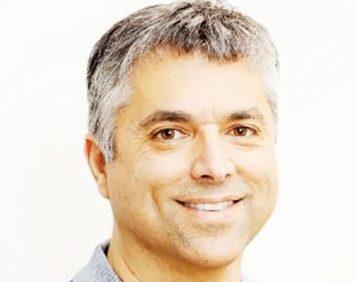Parshot/Festivals
Reflecting on sin, and striving for correction

Rosh Hashanah is our time for gathering together with family to reflect on the past year and plan for the next. None of us is without sin, none of us will remain without sin. Our strength as Jews is recognising our misdeeds and striving to correct them, not repeat them. As a people, this is customarily an internal impetus. As an individual, I have customarily used Rosh Hashanah as a milestone to reflect on my own behaviour and actions, correct, and reset. Religiously, we are required to do so.
We Jews are a strange lot – we’re accustomed to existing as a minority whose imperfections are magnified by others that exaggerate and distort our characteristics for purposes of antisemitism. We often give others the credibility to accuse us collectively and individually without basis in reality. Sometimes we reflect on those allegations, and often internalise them.
Without clear rational or genetic reason, and no matter how religiously non-observant we may be, we Jews have learned to react collectively. When crimes or misdeeds are committed and reported, often, we worry, “Please let the criminal not be Jewish.” Why? Because we know it feeds into rampant antisemitism. We are collectively blamed for the actions of individual Jews.
Antisemitism in South Africa recently reared its ugly head, opportunistically using the Gaza conflagration as another example to increase fervour against Jews. The accusations hurled were almost entirely false. As our youth assimilates these canards, they have sometimes “virtue signalled” by attacking our values to identify with those that hate us. The truth has been inverted in a propaganda war and 10-second soundbites.
Rosh Hashanah is a time to re-evaluate. Israel remains the most moral army in the world. Israeli failings are within the range of normal. Holding Israel and ourselves to a standard our adversaries could never themselves possibly meet isn’t examining and rectifying our conduct, but rather, prejudice in action.
The ever-morphing accusations against our people become tiresome, painful, and frustrating. Our introspection shows that we have lived up to our highest aspirations, and Israel is a force for good in the world. Nothing will ever match perfection. The constant barrage of vitriol is based on disguised antisemitism, not reality. Our introspection has led us to this place of goodness.
So, too, on Rosh Hashanah must we be internally introspective. Our values of love, justice, compassion, hope, and forgiveness guide our conduct. This year, as every year, we renew and rededicate ourselves to justice on all levels. It’s our responsibility that the truth be told. Our legacy as South African Jews is that our families are mostly Lithuanian. Our responsibility must be to remember and convey our heritage, our suffering, our strengths, and our guidance to the next generations.
During the Holocaust, Lithuanian citizens often chose our own holidays as the days on which to murder. Rosh Hashanah and Yom Kippur in 1941 were dates of massive slaughter and infamy. We cannot bring our families back, but on Rosh Hashanah and Yom Kippur, we are obligated to remember them and recite kaddish in their memory. We are the only ones who can preserve the memory of our families. As Lithuania continues to be intent on distorting reality, we continue to be intent on preserving the authentic memory of our destruction at the hands of Lithuanians. We, who are alive in the diaspora, are fortunate that Lithuania is in our past, not a component of our future.
Our quest for justice is inimitable. We will always protect the downtrodden. As South Africa convulses in instability, our Jewish values continually remind us of what we must do.
Rosh Hashanah is my fulcrum period, balancing my past family and personal conduct with my future obligations as a husband, a father, and a Jew. Our Jewish morals guide and dictate our conduct, ever considering the needs of our societies.
We ask those who we have transgressed against to forgive us, and we ask G-d to forgive our transgressions against G-d. We are asked to forgive those who transgressed against us personally. We aren’t entitled to forgive on behalf of those who are no longer with us.
In times of frustration, I wonder if my fight for truth in Lithuania can lead to reconciliation. The constant doubling down by the Lithuanian government in its morass of Holocaust lies makes me wonder if the values of Rosh Hashanah and Yom Kippur can ever become universal. Whatever your tradition may be on these high holidays, I respectfully request that you and your family think about our murdered Lithuanian brethren and what they would want us to do to expose the truth.
Rosh Hashanah is only a few days away. Where does this leave us? We need to continue our fight for justice, and then reconciliation with those who continue to transgress.
- South African-born Grant Gochin is actively involved in Jewish affairs, focusing on historical justice. He has spent the past 20 years documenting and restoring signs of Jewish life in Lithuania. In March 2019, he took the Lithuanian government to court to get it to recognise its active role in the Holocaust.
Devora Even-Tov
September 4, 2021 at 1:19 am
Shana Tova to you to Grant. I follow you in your quest against the Lithuanian government to reveal the truth if the Jews of Lithuania and who was responsible for their deaths. Thank you for never giving up